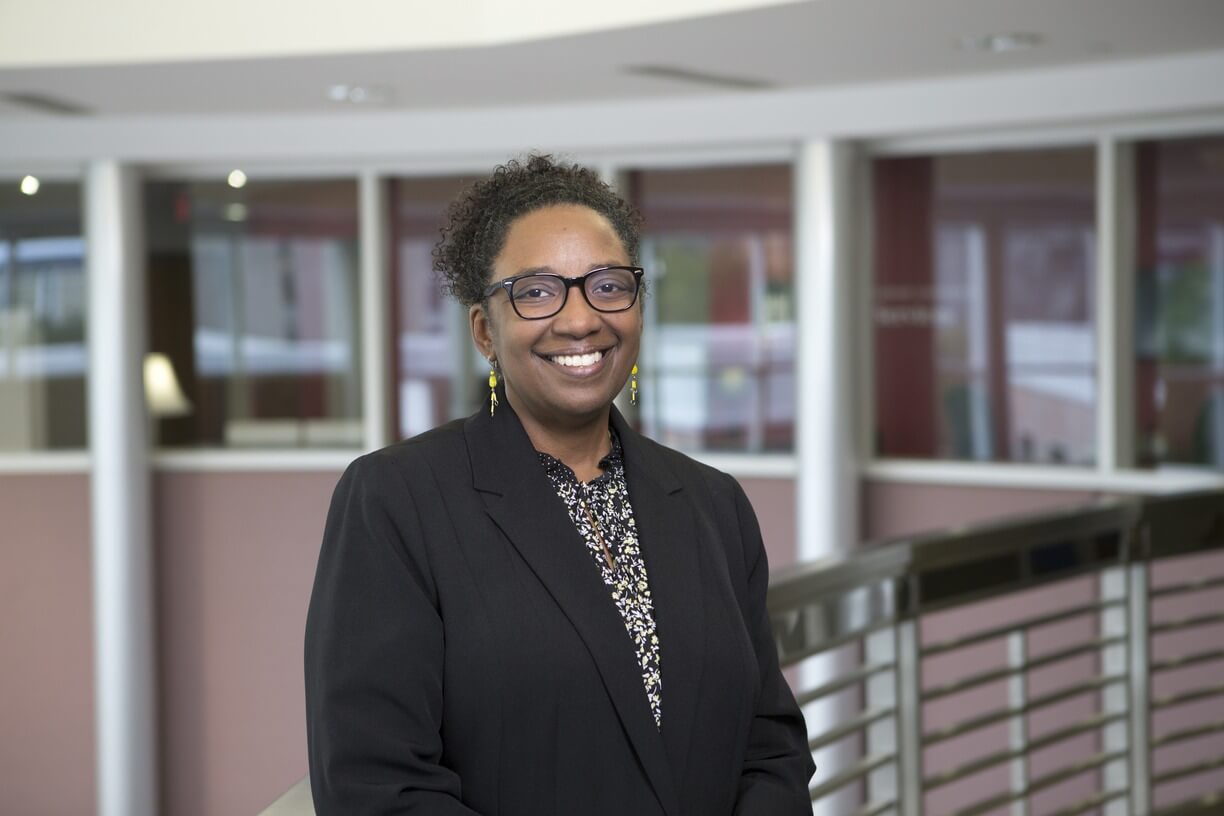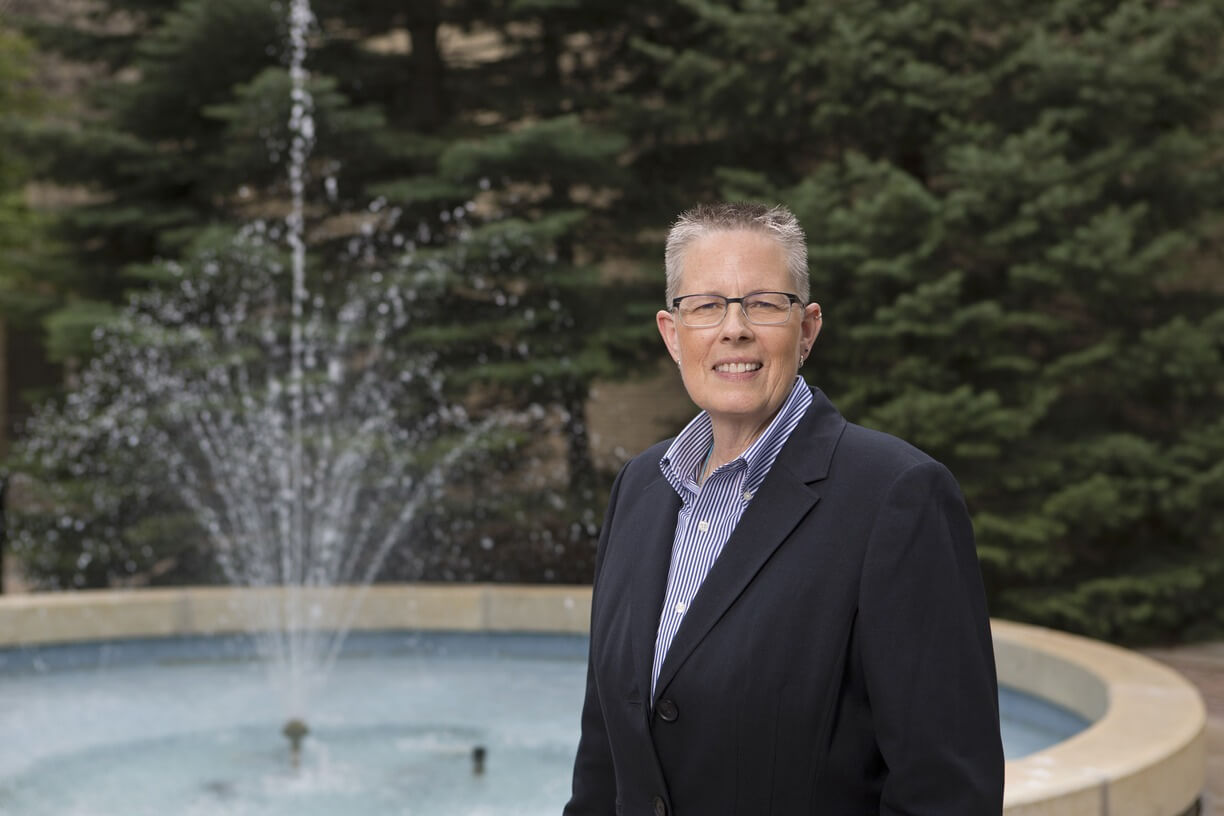When President George H.W. Bush signed the Americans with Disabilities Act into law July 26, 1990, his action improved access and opportunity across all aspects of community life.
Thirty years later, the ADA continues to flourish and impact lives throughout the United States – NIU included in its establishment of an equity-minded community that challenges and eliminates exclusionary systems and practices.
NIU Affirmative Action, Equal Opportunity and Education, committed to providing a rich and accessible environment for the university community, strives to provide helpful information about the procedures, policies and resources for requesting a reasonable accommodation and reporting an accessibility barrier on campus.

Roselynn Snell, executive director of Academic Diversity, Equity and Inclusion
Roselyn Snell, executive director of Academic Diversity, Equity and Inclusion, oversees a team that works to create and sustain an accessible and inclusive working and learning environment where disability is recognized as an aspect of diversity “integral to the campus community and society.”
“We do not do this alone, however,” says Snell, who also serves as ADA coordinator for the university and whose website will celebrate the 30th anniversary throughout the year.
“AAEOE works closely with a core team of campus and community partners to provide workplace accommodations,” she adds, “and to remove physical, attitudinal, systematic, technical and informational barriers that may limit access to workplace and learning opportunities.”

Debra Miller, director of the NIU Disability Resource Center
Protections afforded by the ADA are still necessary because “individuals with disabilities remain marginalized and stigmatized by society,” says Debra Miller, director of the NIU Disability Resource Center.
Data shows that “individuals with disabilities are denied access, and experience less success across the board, inclusive of education, employment, housing and more,” Miller adds.
“Some progress has been made, but the ADA remains vital to further advance civil rights and protect opportunities for people with disabilities,” she says. “The disparities in health care, career attainment and advancement and socioeconomic status between people with disabilities and people without disabilities is largely unchanged during the past three decades.”
Colleges and universities did erect some of those barriers before enaction of the ADA, she says.
“Individuals wishing to attend institutions of higher education might not have been afforded the services needed to participate equitably in all things higher education: housing, dining, student organizations, transportation, university events and programs, etc., in addition to academic endeavors,” Miller says.
“At NIU, the Disability Resource Center fulfills state and federal laws through several measures. Having a qualified and cohesive team is critical in meeting the needs of our students, and we have a full staff of very qualified professionals who are experts in the field,” she adds.
For example, she says, the director, associate director and the access consultants are Certified Rehabilitation Counselors or eligible – “an industry standard to ensure compliance.”
Miller’s team also includes professionals who work with Deaf and hard-of-hearing students and students who are blind or have low vision; a dedicated coordinator of accommodated testing; two full-time CART (Computer Assisted Real-Time Translation) providers; and a closed caption editor.
Their new location in the Campus Life Building, meanwhile, provides “a student-centered, accessible building with double the testing room capacity and adequate accessible parking for students,” she says. “In these ways, the DRC at NIU is meeting and exceeding ADA standards for the benefit of our students.”
Greater accessibility and higher levels of service are goals shared by Academic Diversity, Equity and Inclusion, which recently launched an online form that allows NIU employees to request workplace accommodations and enables faculty, staff, students, community members and visitors to report barriers.
“This system makes it possible for us to provide support for our campus community during these difficult times,” Snell says. “Although we are not physically working in our space on the fourth floor of the Health Services Building; we are still providing comprehensive services.”
Email ada@niu.edu or drc@niu.edu for more information.
